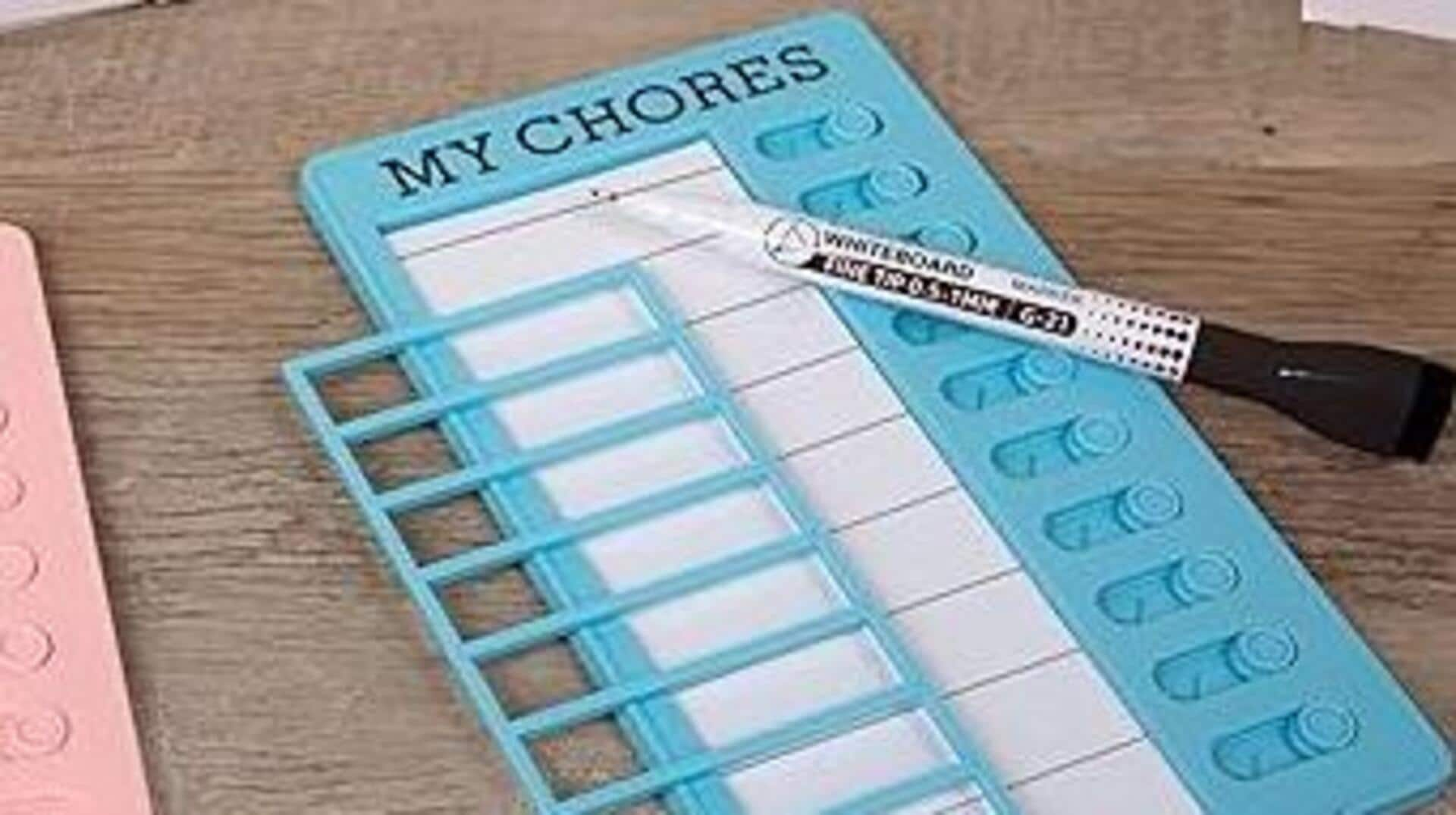
Fostering accountability with task ownership boards for kids
What's the story
Chore boards for kids are a powerful tool for teaching responsibility and accountability from a young age. These boards serve as visual aids, helping children understand their tasks, track their progress, and feel a sense of accomplishment. By delegating tasks and letting kids handle them, parents foster responsibility, improve organizational skills, and encourage independence.
Getting started
Setting up the board
The first step is to establish a task ownership board. This can be a physical whiteboard or corkboard, or a digital app, but it should be something that the child can easily interact with. Write down each task along with its deadlines and guidelines. For smaller children, it is useful to combine pictures or symbols with words. This makes it easier for them to comprehend.
Task allocation
Assigning tasks
When adding tasks to the board, think about your child's age and capabilities. Start with easy tasks for little ones, like picking up toys or making their bed. For older kids, include more challenging responsibilities like homework or helping with household chores. Make sure tasks are achievable; setting unrealistic expectations can lead to frustration and loss of interest.
Monitoring tasks
Tracking progress
A crucial aspect of chore boards is monitoring progress. Letting children check off finished tasks themselves fosters a sense of achievement and promotes self-motivation. Parents should make it a point to regularly go over the board with their child to recognize completed chores and talk about any difficulties encountered with the remaining ones. This not only strengthens accountability but also opens up avenues for positive reinforcement.
Reward system
Celebrating achievements
Adding a reward system to the chore chart can make it even more effective. Rewards don't have to be money; they can be extra playtime, picking the dinner menu for a night, or a special movie night at home. This way, getting tasks done becomes enjoyable and rewarding, while also encouraging positive behavior.
Evolution
Adjusting tasks over time
As children become more competent, the tasks on the board should be modified to reflect their growing abilities. This ensures that they remain engaged and challenged without becoming overwhelmed. By regularly updating the board together, parents can seamlessly introduce new responsibilities that align with their child's developmental stage, while gradually removing simpler tasks that they may have already mastered.